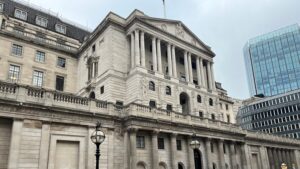The plan for Edinburgh Investment Trust’s (EDIN’s) co-manager Imran Sattar to fully take over the reins upon James de Uphaugh’s retirement next year is “one of continuity”, according to analysts at Kepler Trust Intelligence, who referred to the Liontrust manager as a “seasoned investor”.
The comments come following the release of EDIN’s half-year results on Tuesday (21 November), which reported that the investment company’s net asset value had returned 4.5% over the last six months to the end of September, compared to its FTSE All-Share benchmark’s total return of 1.4%. Its share price total return over the period was 3.3%.
The trust, which is currently geared at 4.1%, has also increased its dividend payout by 4.7% to 6.7p per share, compared to the same six-month period last year.
And yet, its discount over the six months widened from 7.5% to 8.7%.
This could partly be attributed to the retirement announcements of co-managers Chris Field and James de Uphaugh, the former of whom retired earlier this month, and the latter of whom will remain at the helm until February 2024.
The two managers, alongside now-co-manager Imran Sittar, moved with the portfolio across to Liontrust from Majedie in 2020.
Over James de Uphaugh’s three and-a-half year tenure of EDIN, it has achieved NAV and share price total returns of 73.3% and 81.2% respectively, compared to its benchmark’s gains of 49.5%.
See also: Consolidation, overcrowding and widening discounts: Do investment trust boards need to step up?
As part of the trust’s half-year results, chair Elisabeth Stheeman said Sattar will “continue to apply the same flexible investment process that has been the hallmark of the portfolio for the last three and-a-half years”.
“The rest of the board and I look forward to working with Imran. We would like to see Edinburgh considered as a natural ‘core’ equity investment for savers in the UK and beyond. There is much to be done to achieve this objective, but we are confident that we are making strides towards that goal.”
In the same report, de Uphaugh added that being the portfolio manager of the company “has been a highlight” of his career. “While I will miss the engagement with shareholders and the board alike, I am delighted that my longstanding colleague Imran Sattar will be the next portfolio manager,” he said. “The same investment process and collegiate team approach will remain in place once Imran takes over next year.”
There has been some mixed feedback regarding the succession plans, with Square Mile’s research director John Monaghan telling Portfolio Adviser recently that the announcement “pretty much came out of the blue”.
“We liked the three-manager approach”, he said. “With Chris and James stepping away, and Imran having a completely different investing style, we felt investors would end up with a different type of exposure to what they have been used to previously.”
However, Josef Licsauer, investment trust research analyst at Kepler, wrote in a research note published yesterday (22 November) that Sattar is “set to continue” de Uphaugh’s “particular emphasis on total return, seeking out companies offering both a growing dividend over time and some capital growth, preferring not to prioritise one over the other or get stuck chasing a higher yield”.
“James also didn’t want to be wedded to one single investment style, instead preferring a balance of stocks that offer above-average earnings potential as well as some latent recovery, something that underpins his total return approach,” he explained. “As the chair notes [in the half-year results], a primary driver of the outperformance has come from the managers’ approach to stock selection and is evidenced by a number of different stocks, with multiple drivers of returns, contributing to returns, including Centrica and Marks & Spencer.”
He added that the trust’s exposure to mid-cap companies sets it apart from its peers and that, while the firms are more sensitive to market movements, they offer better long-term growth prospects.
“It further reflects the managers’ desire for businesses from all areas of the market to contribute to returns, not just the larger, well-established names everyone is familiar with,” Licsauer said. “Moreover, having more exposure further down the market cap scale meant the portfolio wasn’t invested in some of the larger names that fell over [during] the period, including Diageo and British American Tobacco. These omissions were supportive factors of outperformance.”
While EDIN’s underlying earnings did fall over the last six months to the end of September, the analyst said they welcomed several special dividends in 2022, which “helped boost the total income earned”.
“Overall, we think EDIN offers investors exposure to good quality companies, across a diverse range of sectors with the potential for earnings growth which should feed into rising dividends,” Licsauer concluded. “In our view it’s well positioned to be a core holding for investors seeking a balance between capital growth, current income and income growth, and the managers’ focus on identifying multiple drivers of growth should help reduce the risk of the portfolio, which we think is positive given the uncertain nature of the current economic backdrop.
“If the strong run of performance continues and dividends continue to grow year-on-year, then we also think there is clear potential for the discount to narrow, which could also provide an extra kicker to shareholder returns.”







